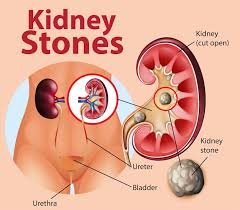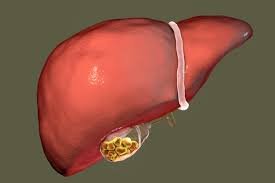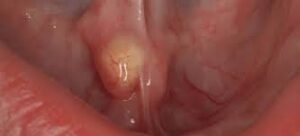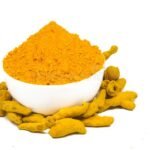Introduction
Our bodies are incredibly complex systems, and sometimes, they can develop conditions that require special attention and care. One such condition is the formation of stones inside the body. Stone formation can occur in various parts of the body, including the kidneys, gallbladder, and salivary glands. These stones can cause discomfort and may require a natural healing center with medical intervention. However, several home Ayurvedic remedies can help alleviate symptoms and support the body’s natural healing processes.
Kidney Stones
Kidney stones are hard deposits formed by extra calcium deposition in the kidneys. They can vary in size and shape and can cause severe pain when passes through the urinary tract. Some common symptoms of kidney stones include intense back or abdominal pain, blood in the urine, and frequent urination.

Ayurvedic Remedies:
1. Drink Plenty of Water: Staying hydrated is crucial for preventing the formation of kidney stones. Drinking an adequate amount of water in daily routine helps dilute the urine and prevents the minerals and salts from crystallizing and forming stones. Carbonated water also helps in the elimination of stones formed inside by eroding through urine.
2. Lemon Juice: The citric acid in lemon juice can help break down kidney stones and prevent their formation. Squeeze the juice of one lemon into a glass of water and drink it daily.
3. Nettle Leaf Tea: Nettle leaf tea is a natural diuretic that can help flush out toxins and prevent the formation of kidney stones. Steep nettle leaves in hot water for 10 minutes, strain, and drink the tea twice a day.
4. Dandelion Root: Dandelion root is known for its diuretic properties and can help increase urine production, flushing out toxins and preventing the formation of kidney stones. Steep dandelion root in hot water for 10 minutes, strain, and drink the tea twice a day.
Limbs Amputated Kidney Stone
Limbs amputated due to severe injury or medical conditions such as diabetes can profoundly impact an individual’s mobility and quality of life. The loss of limbs often requires significant adjustments and rehabilitation to adapt to daily tasks and regain independence. Additionally, kidney stones, though typically not directly related to limb amputation, can cause excruciating pain and complications if left untreated. Timely medical intervention, including medications or procedures like lithotripsy, is crucial for managing kidney stones and preventing further complications. Both limb amputation and kidney stones represent serious medical challenges, necessitating comprehensive care and support to enhance patient outcomes and well-being.
Gallstones
Gallstones are solid deposits that form in the gallbladder, a small organ located below the liver. They can range in size from small grains to large stones and can cause pain and discomfort, especially after consuming fatty or greasy foods. Some common symptoms of gallstones include abdominal pain, nausea, and vomiting.

Ayurvedic Remedies:
1. Apple Cider Vinegar: Apple cider vinegar can help dissolve gallstones and alleviate symptoms. Mix two tablespoons of apple cider vinegar in a glass of apple juice and drink it twice a day.
2. Milk Thistle: Milk thistle is a herb known for its liver-protective properties. It can help improve liver function and promote the breakdown of gallstones. Take milk thistle supplements as directed or consult an Ayurvedic practitioner for guidance.
3. Turmeric: Turmeric contains a compound called curcumin, which has anti-inflammatory properties and can help reduce inflammation in the gallbladder. Add turmeric to your meals daily or take turmeric supplements as directed.
4. Peppermint: Peppermint has been traditionally used to relieve digestive symptoms, including those associated with gallstones. Drink peppermint tea or take peppermint oil capsules as directed.
Salivary Gland Stones
Salivary gland stones, also known as sialoliths, are hard deposits that form in the salivary glands. They can block the flow of saliva and cause swelling and pain in the affected gland. Some common symptoms of salivary gland stones include facial pain, swelling, and difficulty in opening the mouth or swallowing. How to get rid of salivary gland stones? A common question arises in mind which is answered below in terms of ancient science.

Ayurvedic Remedies:
1. Warm Compress: Applying a warm compress to the affected area can help alleviate pain and promote the flow of saliva, potentially helping to dislodge the stone. Soak a clean cloth in warm water, wring out excess, and apply it to the affected area for approximately 15 minutes each day.
2. Lemon Juice: The acidity of lemon juice can help dissolve salivary gland stones. Squeeze the juice of one lemon into a glass of warm water and rinse your mouth with it several times a day.
3. Massage: Gently massaging the affected area can help stimulate saliva flow and potentially dislodge the stone. Use your fingers to apply gentle pressure in a circular motion around the affected gland.
4. Hydration: Staying hydrated is important for promoting saliva production and preventing the formation of salivary gland stones. Drink plenty of water throughout the day to ensure adequate hydration which helps in the elimination of stones through urine.
Conclusion
Stone formation inside the human body can be a painful and uncomfortable condition. However, with the help of home Ayurvedic remedies, it is possible to alleviate symptoms and support the body’s natural healing processes. It is important to remember that these remedies should be used in conjunction with medical advice and guidance. If you experience persistent or severe symptoms, it is essential to consult a healthcare professional for proper diagnosis and treatment.
Image Source: Freepik, Ostrowonline



